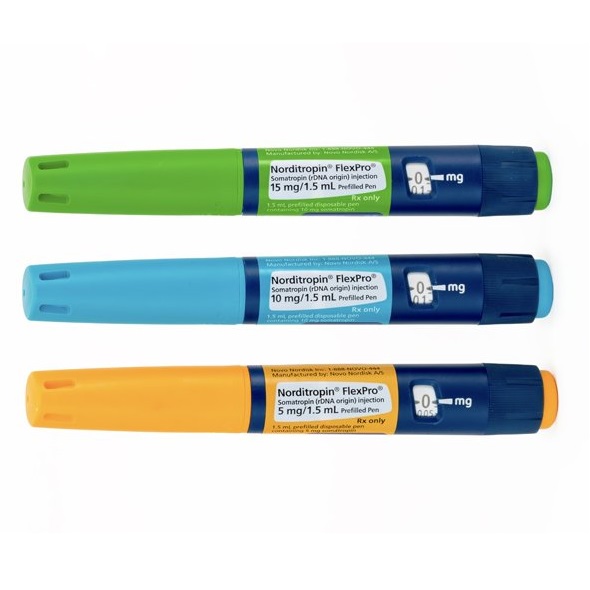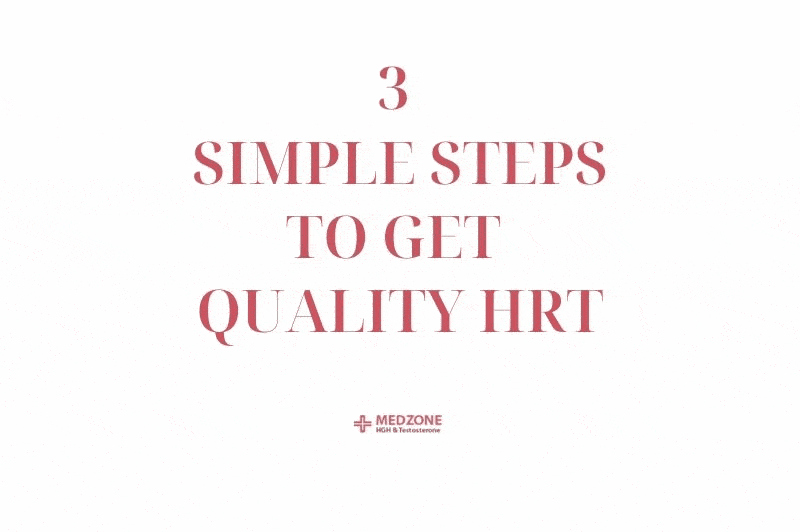
HRT for Men: Types of Hormone Replacement Therapies For Aging Males
Table of Contents
Hormone replacement therapy (HRT) is rapidly gaining recognition in the global medical community for its enormous anti-aging and healing potential. In recent years, clinical researchers have developed a more comprehensive understanding of the critical role that hormones play in the aging process and, more importantly, how they can be managed to protect the health of patients long into their golden years.
Here, we will delve into the exciting science behind anti-aging HRT and how it can help men maintain their virility and youthful “lust for life” over time.
Health Issues and Challenges Commonly Faced by Aging Men
We have long known about the perils of aging in terms of its effect on health – only recently have we begun to understand how to slow or even reverse the aging process. Aging, when the process is not reversed through HRT and lifestyle changes, can affect nearly every organ, gland, and tissue in the body. The health issues and challenges commonly faced by aging men include:
- Cardiovascular disease, including heart disease, that can lead to heart attack and stroke
- Cancers in various forms
- Loss of libido (sexual desire)
- Increasing rates of erectile dysfunction (ED)
- Respiratory diseases such as emphysema and COPD
- Alzheimer’s disease, Parkinson’s disease, and other neurodegenerative conditions
- Osteoporosis
- Arthritis (chronic inflammation of the joints)
- Diabetes and other metabolic disorders
- Sarcopenia (age-related muscle loss)
- Depression, anxiety, and other mental health conditions
- Unwanted weight gain, particularly increasing visceral fat, or “belly fat,” that speeds the development of metabolic and cardiovascular disease
- Chronic fatigue (low energy levels)
Many of these conditions associated with aging are due to unchecked, chronic inflammation – a known driver of nearly every form of non-pathogenic illness. Men who have testosterone deficiencies lose out on the powerful anti-inflammatory effects of testosterone, the primary male sex hormone that, in combination with other important hormones, keeps inflammation levels low.
Another critical hormone for men, human growth hormone (HGH), is likewise responsible for stopping runaway inflammation:
“Growth hormone therapy can reduce the levels of C-reactive protein (CRP), an important marker of inflammation in GH-deficient patients, and exert anti-inflammatory effects in different models of experimentally induced sepsis by reducing the levels of TNFα and promoting secretion of IL-10.”
Let’s get into the multiple symptoms that men with hormone imbalance often experience.
What Are the Symptoms of Hormone Imbalance in Men?
The symptoms of hormone imbalance in men are legion. Because the body has androgen receptors (ARs) – sites where testosterone binds to the cells and exerts its protective effects — in every major tissue and organ, the implications of testosterone deficiency are enormous. The graphic below shows the various locations of androgen receptors (ARs) throughout the male anatomy:
Human growth hormone receptors (GHRs), likewise, are located across multiple systems, indicating that this pro-growth hormone plays a role in maintaining the health and optimal function of all the major organs of the body:
“Growth hormone receptors (GHRs) have been found on the cell surfaces of many tissues throughout the body, including liver, muscle, adipose, and kidney, and in early embryonic and fetal tissue.”
Again, the extensive presence of HGH and testosterone receptors means that the symptoms of hormone imbalance can present in multiple ways.

In the case of testosterone deficiency (low T), for example:
“Low T levels in men were significantly associated with high level of inflammatory markers in different clinical conditions such as obesity, metabolic syndrome, heart failure, healthy elderly population, carotid atherosclerosis, hypogonadism, urologic symptoms, type 2 diabetes.”
What this means in practical terms is that, unfortunately, many medical doctors without extensive training in the role of hormones in the body (endocrinology) often overlook the signs and symptoms of hormone imbalance. In these cases, patients may receive a wrongful diagnosis that does not address the root cause of the symptoms they experience.
In a classic example, a clinician might overlook the critical role that hormones play in preventing depression. Depression is a major sign of hormone deficiency, but in these situations the doctor may simply prescribe a pharmaceutical such as a serotonin reuptake inhibitor (SSRI) when the issue, in fact, is an undetected hormone imbalance. Too often, the tragic end result in situations like these is that the underlying issue (hormone imbalance) is never resolved and the patient begins taking a drug that does not fix the primary cause of depression.
This is why it’s critical to routinely test your hormone levels and to consult with an experienced endocrinologist (a hormone doctor that specializes in diagnosing and treating hormone disorders).
The many signs and symptoms of hormone deficiency in men include:
- Depression, anxiety, or other emerging mental health issues
- Erectile dysfunction
- Weight gain
- Memory loss
- Sensitivity to heat and cold
- Impaired sleep (insomnia)
- Cognitive decline
- Fatigue
- Hair loss
- Loss of muscle mass
- Low sex drive
What Happens to Men’s Hormones as They Age and Why?
The human body has more than 50 identified hormones. Together, they interact in a complex interplay through so-called biofeedback loops. These feedback loops are part of the overall process of homeostasis – the regulation of consistent conditions in the body that lead to stable health outcomes. Unfortunately, as we age, a number of factors can disrupt this hormonal balance and lead to devastating health issues. The known factors that drive hormone imbalance in men are:
- Environmental toxins (air pollution, chemicals in the food and water, additives to plastics that mimic estrogen (the main female sex hormone) such as bisphenol-A, etc.). These materials are called “endocrine disrupters” and constitute a major public health threat that drives down male fertility and cripples sexual function in men
- Uncontrolled stress. Chronic stress, another major public health challenge, affects an enormous percentage of American men due to workplace demands, the “on-the-go” modern lifestyle, and other factors. When the body is exposed to chronic stress, levels of the “stress hormone” cortisol skyrocket and wreak havoc on hormone health. Later on, we’ll discuss strategies to relax and reduce cortisol levels.
- Lack of proper sleep. During the nighttime, as a natural part of the circadian rhythm, the body replenishes and rebalances its hormones, along with other essential repair processes. Men need between 7-9 hours of uninterrupted sleep each night for optimal health.
- Poor diet. As a society, we’ve lost our way when it comes to healthy eating. We consume far too many refined carbohydrates (i.e., processed sugars) and other harmful ingredients found in pre-packaged foods and not enough nutritious, whole foods. Later, we’ll further explore how to optimize your diet for hormonal balance.
- Lack of exercise. Any form of exercise, but especially high-intensity activities like weightlifting or high-intensity interval training (HIIT), boost critical hormones for men like testosterone and HGH.
Let’s get into the details of the disastrous results in terms of how these factors negatively impact hormone health in men and the specific hormones at play.
Types of Hormone Imbalance in Men and Their Negative Health Effects
The term “hormone imbalance” is a broad and all-encompassing term that can refer to a number of hormones in the body. Let’s run down the most important hormones that men experience disruptions to as they age:
- Thyroid hormones. The thyroid is a butterfly-shaped gland located at the base of the throat. It secretes three hormones that serve an array of functions: triiodothyronine (T3), thyroxine (T4), and calcitonin. The thyroid hormones are responsible for regulating metabolism (energy storage and use), heart function, and healthy tissue growth in combination with human growth hormone (HGH). Men who develop thyroid imbalances experience depression, unwanted weight gain (body fat), muscle and joint pain, and chronic fatigue. Unfortunately, men lose, on average, about 1% of their testosterone each year after levels peak in their late teens or early 20s.
- Testosterone. Far and away, testosterone is the most critical hormone for maintaining men’s sexual health. As the primary male sex hormone, or androgen, testosterone keeps sexual libido high, maintains sperm quality, and enables men to achieve full, hard erections. It is also implicated in a number of other markers of good health in men.
- Human growth hormone (HGH). Researchers have only begun to appreciate the deep importance of HGH for anti-aging health preservation in men. Like testosterone, HGH levels decline with age.
Together with its anabolic partner hormone, insulin-like growth factor 1 (IGF-1), HGH promotes muscle development via protein synthesis, burns fat, keeps energy levels high, and protects against age-related cognitive decline, among many other functions.
- Melatonin. This hormone regulates the circadian rhythm (sleep cycle). It also enhances HGH secretion – important for any man with an HGH deficiency.
- Cortisol. Known as the “stress hormone,” cortisol levels can become unmanageable due to uncontrolled stress. When we can’t relax, cortisol levels spike and stay elevated, creating a number of negative health outcomes, including chronically elevated systemic inflammation – a disaster for long-term health.
- Insulin. Critical for processing and storing energy from sugars, fats, and proteins ingested through the diet efficiently, insulin levels can become unbalanced later in life and contribute to metabolic disease.
- Follicle-stimulating hormone
- Luteinizing hormone
- Norepinephrine
- Epinephrine (in the very old)
- Parathyroid hormone
The Numerous and Significant Health Benefits of HRT For Men
HRT for men has multiple anti-aging effects that enhance virility, increase sexual desire, and boost physical and cognitive performance. Here is a sampling of the many benefits of HRT for men:
- Increased muscle mass and strength
- Reduced visceral fat, or “belly fat” – great for both improved appearance and reduced risk of chronic disease
- Higher energy levels
- Improved cognitive function, including enhanced memory, information processing, and concentration
- Reduced severity of depression, anxiety, and other mental health conditions
- A more optimistic outlook on life and better mood
- Decreased risk of cardiovascular disease and other forms of chronic, age-related illness
- More youthful appearance of skin
How Much Does HRT Cost?
In the charts below, we run down the average costs for both testosterone replacement therapy (TRT) and HGH replacement therapy.
| Average TRT Cost for US Patients (Online) | |
| Initial doctor consultation + Lab Work | $500 |
| Average monthly testosterone cost (x 6 months average therapy length) | $30-$120 (depending on dose and delivery method) |
| Total TRT Cost | $1,200 |
| Average Monthly HGH Cost for US Patients | |
| Initial doctor consultation + lab Work | $500 |
| Monthly somatropin cost | $800-3,000 (depending on dose and delivery method) |
| Average monthly HGH therapy cost for a patient in their 50s | $1,200 |
You can shave your HRT costs in multiple ways:
- Purchase your hormones in bulk
- Use hormone supplement prescription coupons
- Find your doctor and prescriptions online
- Join an online men’s hormone support group
- Boost and sustain the effectiveness of HRT with lifestyle changes
Guidelines and Tips for Getting the Most Out of HRT
Getting the most out of HRT requires lasting changes to your everyday lifestyle practices. The most critical modifications to your daily routines are:
- Optimizing your diet to include more whole foods and less processed ones
- Supplementation with endocrine-boosting vitamin D, zinc, melatonin, etc. (when necessary)


